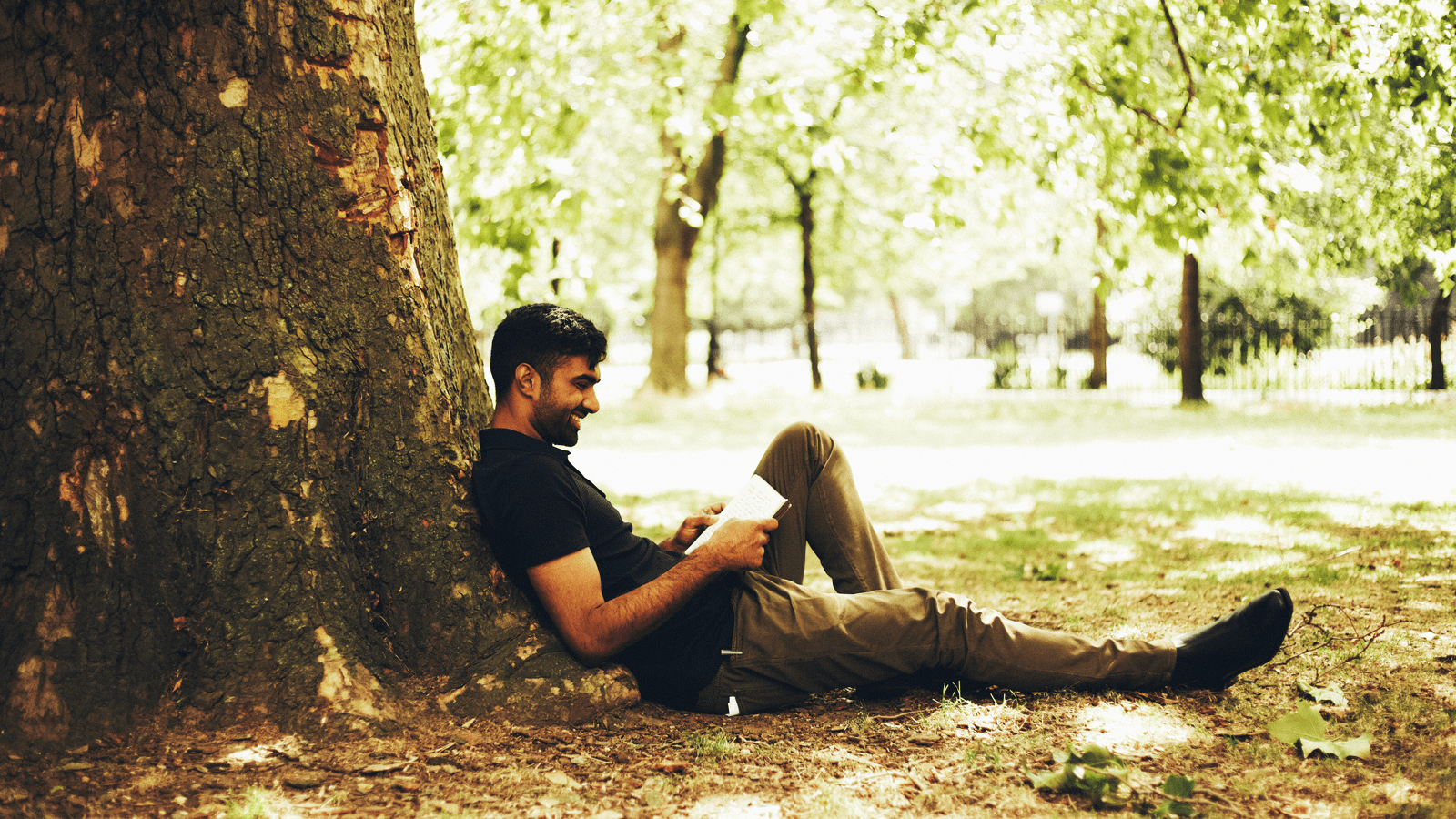
Get stories and expert advice on all things related to college and parenting.

After a long day of class, homework, extracurriculars and assigned reading, I’m usually exhausted. On a given day at college, the final piece of my schedule is generally to find some way of winding down and taking a break. It used to be that, even before I finished all my work, I would daydream about plopping down somewhere comfortable to zone out and watch TV — I could practically hear the merciful dun-dun of the Netflix homepage beckoning me to give my tired mind a rest.
In recent years, though, I’ve changed up my routine. It may sound crazy, but now when I shut the cover of a textbook, I relax by opening the cover of another book… and reading some more.
In my first years at college, I would’ve balked at the thought of leisure reading — the phrase practically sounded like an oxymoron. But as I’ve rediscovered my love of reading for fun, I’ve found more and more compelling evidence as to why picking up a book is a great way to unwind.
Here are some reasons to make time for recreational reading in even the busiest of schedules. Share these tips with your college student!
Researchers have found that 30 minutes of reading does as much to lower students’ stress as a yoga session or comedy viewing of the same length. Next time you have half an hour to de-stress between classes but don’t want to get sweaty, consider reaching for some light reading to relax.
Multiple studies (including this one from Trends in Cognitive Sciences) show that reading fiction — especially literary fiction — develops empathy and increases the ability to accurately determine others’ feelings.
Stepping into a character’s story requires you to imagine their different emotional states and gives you good practice for picturing yourself in someone else’s shoes in real life. According to the experts, the more you read literary fiction, the better your chances are at understanding where someone else is coming from. So, if you’ve ever wanted to improve your relationships, you have an incentive to pick up a book!
Have you ever been so focused on a good book that you looked up and realized hours had passed without you noticing? That state of total focus is what scientists call “flow,” and not only is recreational reading one of the most common ways to enter the flow state, but flow is also connected to decreased feelings of loneliness.
It makes sense when you think about it, since every time you read you’re spending time with characters and exploring new places through a story. Especially in the quarantine era, we could all use some more time socializing with friends (even fictional ones).
We’re all guilty of multitasking — and working from home or taking classes through our computers isn’t doing much to improve the matter. Sending texts, answering emails and responding to private Zoom messages all while also trying to focus on a meeting or lecture can make you feel like a boss… But this kind of multitasking is actually pretty bad for our concentration, making us more easily distractible.
If you’re a habitual multitasker, you may notice that when you try to shift your attention to academic reading, you’re impatient and unfocused. When you read for pleasure, you help yourself get accustomed to focusing on one thing at a time. Leisure reading correlates with lower distractibility, which means next time you open your textbook, you’ll have a better chance of actually absorbing the material.
One thing I love about reading is the convention of chapters. If you need to take a breather from your work, watching TV is a tempting way to escape. But, if you’re anything like me, as the credits roll and the cursed "next episode" button loads, it’s all too easy to watch as the credits turn into the theme song and Just One Episode turns into far more episodes (oops).
It’s tough to pause mid-show when there aren’t necessarily deliberate breaks in the action, but books have that problem solved. Set a limit for how many chapters you’ll read, and you have a portion-controlled study break.
These days, it seems like we live our whole lives online. If a day full of Zoom isn’t enough to make you want to never look at a computer again, think about all the blue light you take in by spending so much time in front of a screen.
Blue light sounds deceptively innocent, but according to studies like this one from Harvard Medical School, it can mess with your circadian rhythm and wreak havoc on your quality of sleep. If you’ve gotten into the habit of watching a movie or scrolling through social media before bed, try putting your screens away in favor of a good, old-fashioned, physical book for half hour or an hour before bedtime — it could make a difference in getting your sleep schedule under control and helping you catch some more ‘zzz’s.
Virtual college learning, remote internships and working from home can be overwhelming in their own ways. Next time you need to get away from it all, I hope you’ll find solace in a good book — and reap the benefits!